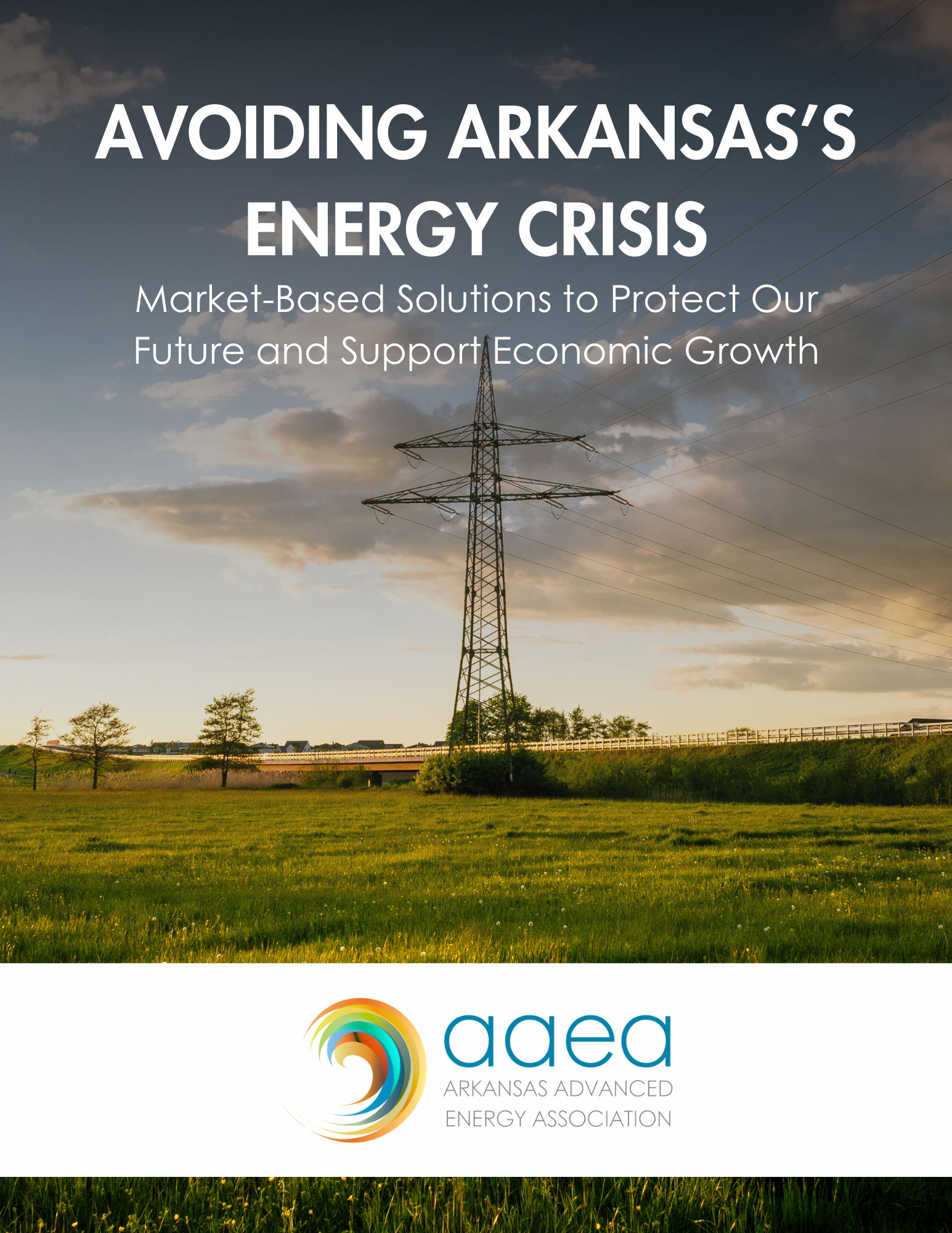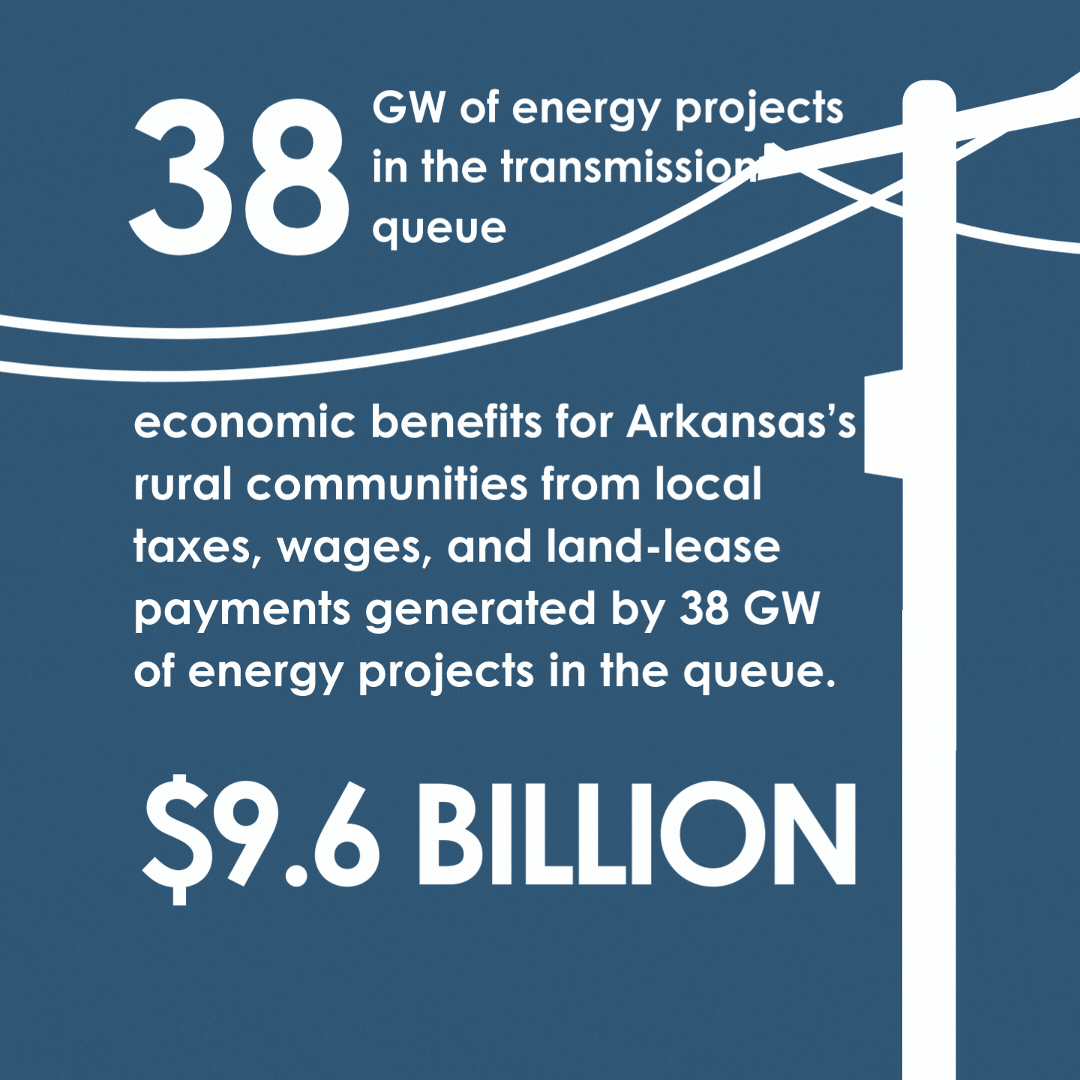Overview
Arkansas is on the brink of an energy crisis. Critical capacity gaps are projected to begin as early as 2026, yet meaningful action remains elusive. The status quo isn’t cutting it anymore. Without sufficient policies, Arkansas risks rising costs, reliability issues, and economic fallout.
At the Arkansas Advanced Energy Association (AAEA), we believe that securing Arkansas’s energy future requires policies that address critical challenges head-on. These policies must support increased generation, promote innovation, enable markets to work, and encourage responsible energy consumption through new programs and creative solutions. Advanced technologies—whether through energy efficiency, alternative fuels, or other innovations—offer Arkansas the tools to tackle these issues in a way that reflects our values of hard work, innovation, and responsible stewardship. With energy security and economic stability at stake, fiscally responsible, market-driven solutions are needed now more than ever.
Arkansas cannot afford to wait any longer to reckon with the urgency of this situation. AAEA is advocating for solutions that will ensure reliable, responsible, affordable energy while protecting the economic foundation of our state. The following pages outline the critical issues Arkansas faces and the practical, market-driven solutions needed to help manage them.
Best regards,
Lauren Waldrip
Executive Director
Key Issue #1: Economic Opportunities
Arkansas’s economic future depends on reliable and affordable energy. To meet rising energy demands and attract new businesses, the state must prioritize market-driven planning that addresses potential shortages. By utilizing natural resources found in Arkansas to boost the state’s energy storage, we can position Arkansas as a leader in modern energy systems while supporting local economies and high-quality jobs.
Key Issue #2: National Energy Security
Key Issue #3: Accountability to Ensure Affordability
Energy decisions in Arkansas must prioritize fairness and cost-efficiency. By ensuring open, balanced planning processes and fostering collaboration among stakeholders, we can identify solutions that keep energy costs manageable for ratepayers. Proactive planning ensures Arkansas avoids the compounded costs of last-minute solutions, maintains competitive energy rates, and protects its economy from disruptions caused by rolling blackouts or high energy prices. Transparent, market-based strategies prevent unnecessary expenses and safeguard Arkansas families and businesses from rising energy burdens, ensuring long-term affordability.
Energy reliability is a critical component of national security. Delays in planning and infrastructure investment leave Arkansas vulnerable to future energy deficits and increasing costs. Strategic investments in transmission infrastructure and diversified energy sources will reduce dependence on external markets, ensuring a stable and self-reliant energy future for Arkansas.
Key Issue #4: Local Communities
Strengthening Arkansas’s energy systems starts with its communities. Investing in a resilient local workforce and supporting policies that respect landowner rights, contribute to long-term reliability and affordability. Balanced decommissioning strategies and new tax revenues from energy projects can bring lasting benefits to Arkansas’s towns and counties, reinforcing the connection between local growth and energy development.






